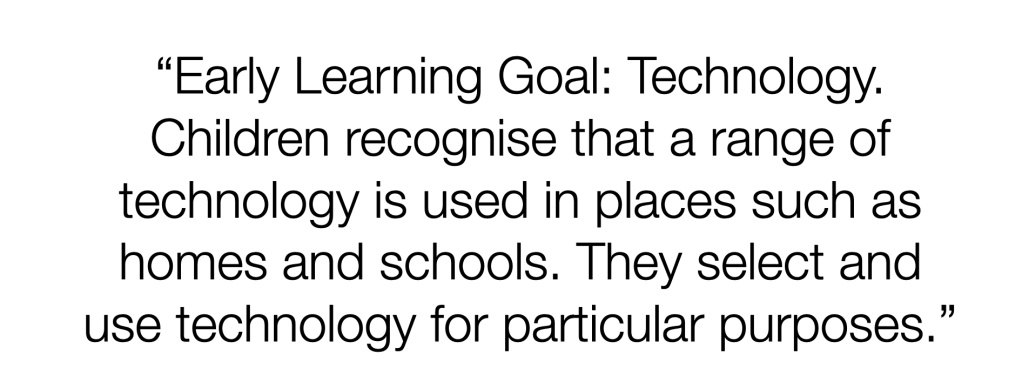There has been a flurry of articles published recently about tablets, and general technology use, and how overuse at home may be having a detrimental impact on early childhood development. These articles often highlight a practitioner’s viewpoint that physical development is the lowest it has ever been, that children can’t hold paintbrushes and there are no mouse or keyboard skills these days. As with most good things in life, good health and well-being comes with careful balance and always in moderation; it’s not often that a total ban is a necessary solution.
I was going to write about this, and why I think a complete ban or avoidance of technology in early years will not close the gap in physical development and social skills. I would have written something along these points:
- We are supposed to find out what children bring to their learning, what skills they have, and develop them.
- Technology is 1 area of learning where children’s home skills do not match the skills we want to see in learning.
- Children are consuming content at home (watch video, play games, listen to music) and we need to teach them to create with technology (make films, code games and create music).
My point would be, if we are recognising children have an unbalanced diet with technology, that they are consuming too much content, then we should be planning for our children to learn how to create. If they learn how to create with technology, their characteristics of effective learning are enhanced. We would give them another way to express themselves, in a medium they are interested in. Then, what if, they go away and download these apps at home? Suddenly, the gaps could start to close. That children are making stunning photographs, meaningful films, collaborating and sharing their work with a real audience. Their learning becomes focused on the idea and the task… and not the device.
But I decided not to write about that.

Instead, I want to share apps to use on 1 iPad, that require no touch at all and we can put the iPad down and make it respond to us using all of our physical skills. Those skills that we need to develop now more than ever.
Continue reading →












